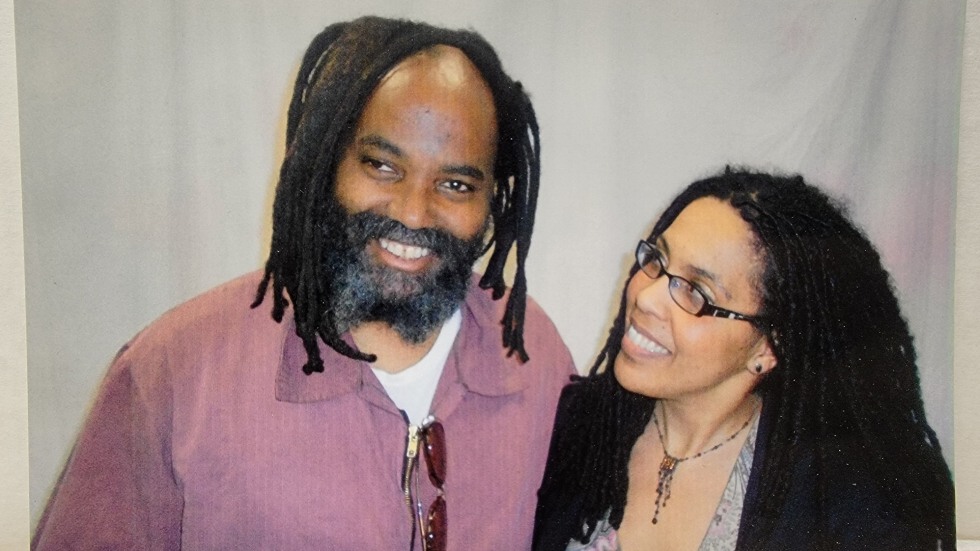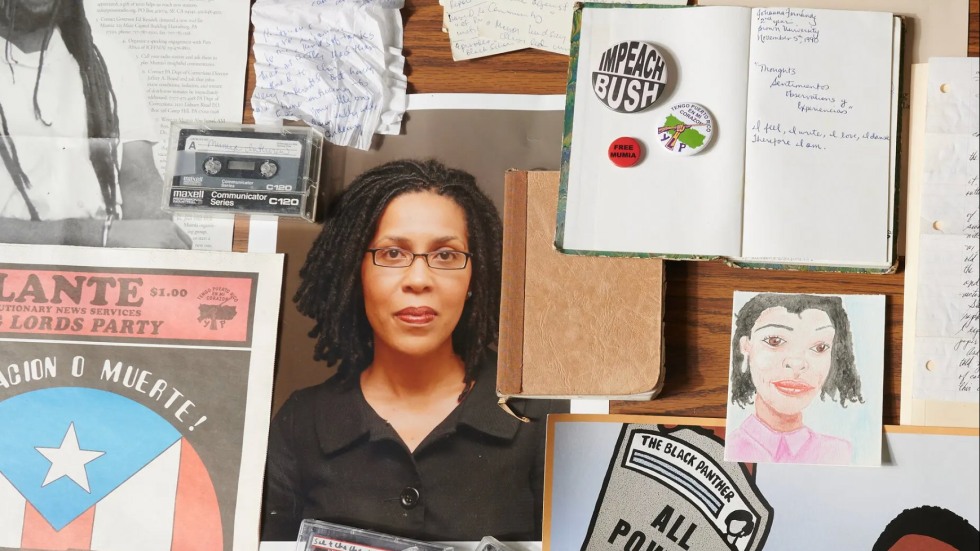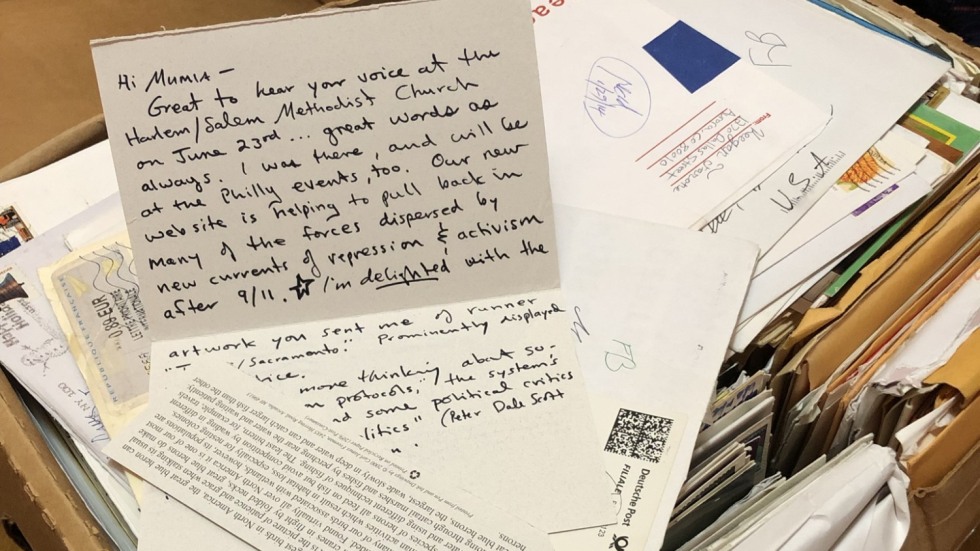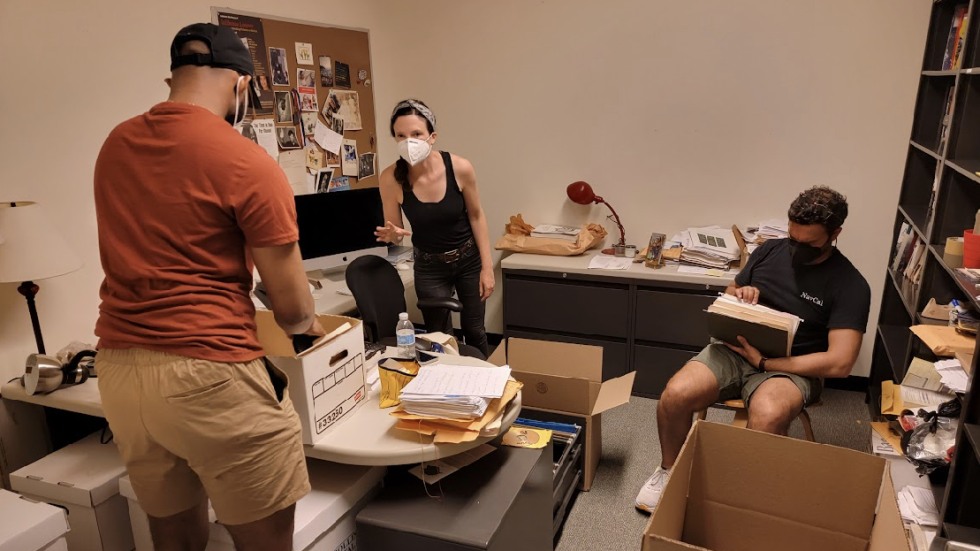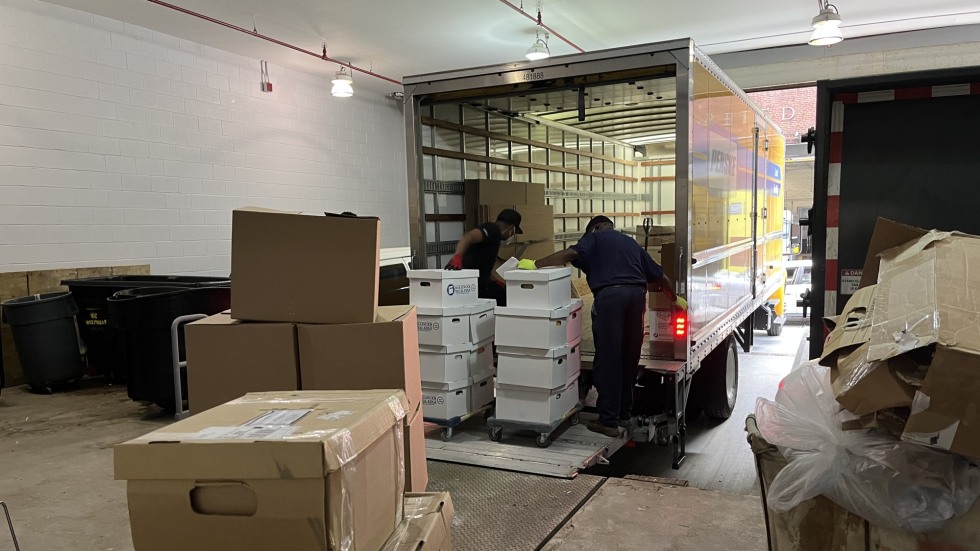Abu-Jamal, once referred to as the “most famous man on death row,” co-founded the Philadelphia Black Panther Party and worked as a journalist and community organizer prior to his imprisonment. Since 1981, he has pleaded his innocence and fought his conviction for the killing of Philadelphia police officer Daniel Faulkner. No longer on death row, Abu-Jamal has been incarcerated for 41 years. Fernández, Associate Professor of History at Baruch College (CUNY), is a Brown alumna, social justice activist, and long-time member of the Pembroke Center Advisory Council. Like many students who attended college during the 1990s, the height of the Free Mumia movement, Fernández likely first learned about Mumia while at Brown. In 2005, in the midst of a postdoctoral fellowship at Carnegie Mellon University, Fernández had a colleague suggest that she visit Abu-Jamal on death row, and the visit sparked a lifelong friendship. Fernández edited Writing on the Wall: Selected Prison Writings of Mumia Abu-Jamal, co-edited with Abu-Jamal a special issue on incarceration for the journal Socialism and Democracy, and wrote and produced the one-hour documentary film Justice On Trial: The Case of Mumia Abu-Jamal. Then in 2011, when Abu-Jamal’s sentence was commuted from death to life in prison, he began sending papers that had been accumulating in his cell to friends and advocates outside of prison. Fernández stepped up to gather those papers in a central location for safekeeping in her home.
The acquisition of Fernández’s and Abu-Jamal’s papers began with a Pembroke Center Oral History Project interview conducted by Judith Surkis ’92, Professor of History at Rutgers University and Member at the Institute for Advanced Study, in 2017. Surkis interviewed Fernández about her experience as a first-generation college student, student activist, and scholar. Then, at the start of the pandemic in 2020, archivist Mary Murphy interviewed Fernández again, this time about Fernández’s experiences as a pandemic-era radio host and the award-winning author of the Young Lords Party: A Radical History. In sharing her story, Fernández and Murphy connected and began speaking by phone about Fernández’s papers. It was just after one of these calls that Fernández called Murphy back and shared the jaw-dropping news that she also stored Abu-Jamal’s papers in her New York apartment. This led Murphy to pursue the acquisition of both collections.
Voices of Mass Incarceration is a partnership between several academic units at Brown that have drawn connections between mass incarceration and systemic inequalities in the U.S. These centers include the Pembroke Center, the John Hay Library, the Center for the Study of Race and Ethnicity in America, and the Center for the Study of Slavery and Justice. The Abu-Jamal papers at the John Hay Library will join a growing archive of scholarly materials on incarceration amassed by the CSREA. The acquisition, along with the Fernández papers, will be made available for use in 2023 following a thorough cataloging process by Knox.
Speaking to Brown University Communications, Kenvi Phillips, director of library diversity, equity, and inclusion at Brown, noted, “Prisons are designed to keep the incarcerated in and to keep others out. As a result, people who are incarcerated are largely absent from national conversations — with the exception of Mumia Abu-Jamal, who has spoken on behalf of this often-invisible demographic. This collection will give scholars a rare chance to peer inside prison walls and understand how incarcerated people live, think, and advocate for themselves.”
